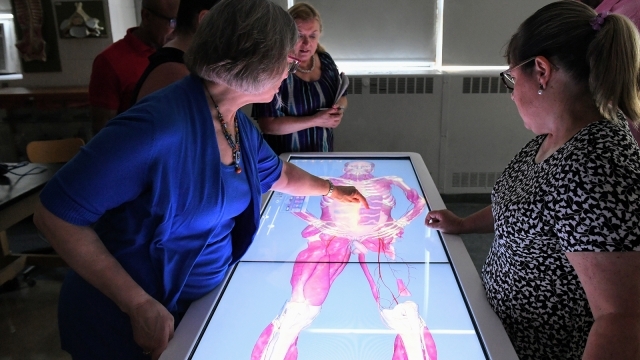

About The College of Pharmacy and Health Sciences
- Home
- Academics
- Our Schools and Colleges
- College of Pharmacy and Health Sciences
- About The College of Pharmacy and Health Sciences
The College of Pharmacy and Health Sciences equips students with the education, training and support they need to meet the present and future demands professionals encounter as pharmacists, physician assistants, clinical laboratory scientists, toxicologists and radiologic technologists.
The College is committed to helping students:
- Focus on the responsibilities of public health and service
- Appreciate the ever-changing character of the health professions
- Enjoy a broad, general education
- Pursue graduate study in specialized fields of interest
Facilities
Laboratory facilities in the College of Pharmacy and Health Sciences include state-of-the-art equipment used in pharmacology/toxicology, medicinal chemistry, industrial pharmacy and drug information.
Our facilities include: GC-mass spectrophotometers; transmission and scanning electron microscopes; Mrs.; capillary GCs; preparative and analytical HPLCs; liquid scintillation and gamma counters; luminometers; dissolution apparatus; membrane potentiometers; atomic absorption spectrophotometers; polygraphs; high-speed and ultracentrifuges.
In addition, we have sophisticated tissue-cultures laboratories, molecular pharmacology and molecular biology laboratories, as well as an AAALAC accredited animal facility. In addition to the main University computer labs, a fully equipped microcomputer laboratory is located adjacent to the main science complex.
General Information
A complete overview of the College of Pharmacy and Health Sciences undergraduate department and programs can be obtained from the online bulletin.
Licensure Requirements
All graduates from the Pharmacy, Physician Assistant, Clinical Laboratory Sciences and Radiologic Sciences degree programs as well as those from the Emergency Medical Services Institute will be required to complete the licensure requirements for their profession in the state(s) in which they will practice.
Professional licensure and certification requirements often vary from state to state. St. John’s University has not determined requirements for individual states beyond New York. If you reside or plan to reside outside New York you are strongly encouraged to contact the appropriate state licensing agency in that state to seek information and guidance before beginning the program.
